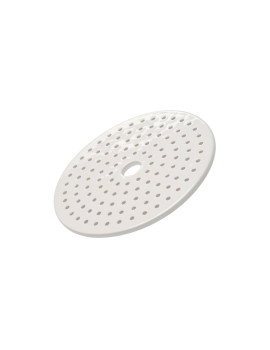DESICCATORS
Laboratory glass desiccators
Glass desiccators are essential tools in the laboratory, designed to keep substances dehydrated and free of moisture. Made of thick glass, these devices consist of two cavities: the upper one for the material to be dried and the lower one for the desiccant, such as silica gel. Vacuum is achieved through a stopcock, which makes it easy to remove air. Some models are also made of plastic or porcelain, offering affordable alternatives.
Key Features of Desiccators
- Materials: glass, porcelain, plastic.
- Parts: lid, tray, base and desiccant.
- Use: Ideal for maintaining the integrity of hygroscopic samples and avoiding contamination.
Benefits of using glass desiccators
- Durability: Glass provides chemical and mechanical resistance.
- Efficiency: Vacuum environment improves drying efficiency.
- Versatility: accepts different desiccants and is suitable for multiple applications.
Maintenance and safety of desiccators
To open a dessicator safely, slide the lid instead of lifting it, thus avoiding damage from internal pressure. After use, be sure to clean properly and check seal integrity for optimal performance.
Purchase and selection of desiccator
When selecting a desiccator, consider the appropriate size and type of desiccant. Models with a faucet and porcelain plates are preferred for applications requiring precise vacuum control.
Glass desiccators are essential in laboratories due to their ability to keep samples dry and free of contaminants, ensuring precision in experiments.











